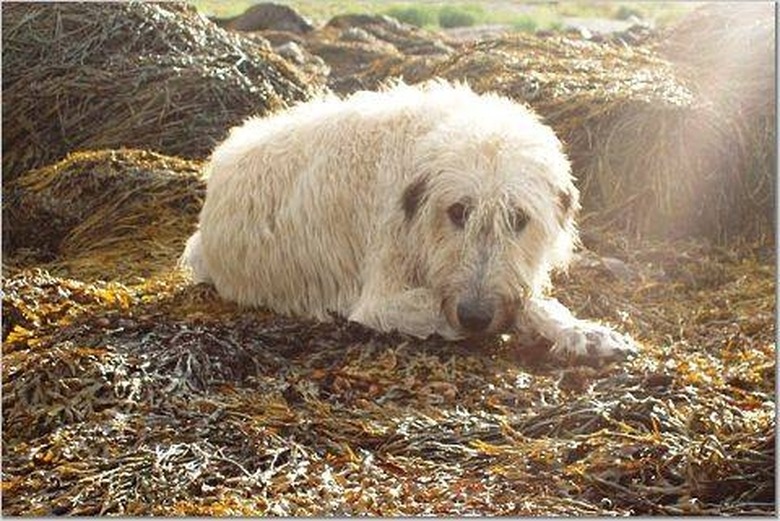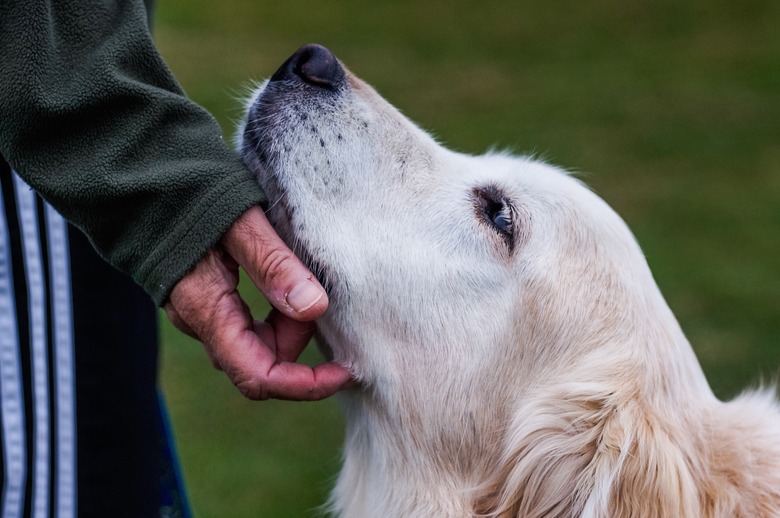Breathing Problems In Old Dogs
Conditions that cause breathing problems can affect dogs of any age, but some of these are far more likely to affect older dogs. Some breeds are much more prone to breathing problems. These dogs are classified as brachycephalic breeds and include French bulldogs, pugs, and boxers. If your old dog is wheezing and gagging, seek veterinary care right away.
Common respiratory symptoms
Common respiratory symptoms
Some common symptoms associated with a respiratory illness include difficulty breathing, wheezing, coughing, and nasal congestion. Dogs will find exercise difficult, and they may faint. If there is a serious lack of oxygen in the system, a dog's gums may turn blue.
If an older dog is fully vaccinated, he is less likely to suffer some illnesses that are more common to puppies who aren't yet vaccinated. These include illnesses such as kennel cough, distemper, and the flu, although dogs of any age may be infected with these diseases.
While many conditions that cause breathing problems in older dogs may not be curable, regular vet checkups can help diagnose problems early, giving your dog the best chance. If you notice any change in your dog's breathing, make sure to contact your vet right away.
Congestive heart disease and COPD
Congestive heart disease and COPD
Congestive heart failure is a condition that causes fluid to build up around the lungs due to a leak in one of the heart valves. Wheezing and coughing are common symptoms. Your veterinarian can treat this condition with diuretics and vasodilator medications. Some of these treatments can be taxing on the kidneys, so your vet will also monitor kidney function as well.
Chronic obstructive pulmonary disease, or COPD, is an incurable and progressive disease. Your veterinarian can offer treatment options to help your dog's symptoms and slow the progression of the disease. This may include bronchodilators or antibiotics.
Lung tumor in dogs
Lung tumor in dogs
The most common type of lung tumor is a pulmonary adenocarcinoma, and this condition is most common in dogs 11 years of age or older. It is also possible that a lung tumor may develop when a tumor somewhere else in the body spreads. The treatment for a lung tumor is surgical removal.
However, this may not be a viable option if cancer has spread to multiple locations in the body. In addition, surgery requires an elderly dog to go under general anesthesia, which may not be safe if the dog is otherwise in poor health.
Laryngeal paralysis symptoms
Laryngeal paralysis symptoms
Laryngeal paralysis is believed to be caused by nerve problems, although the cause of the disease is unknown. It occurs when the muscles around the dog's vocal cords don't work properly and fail to open to allow a dog to take a deep breath. This condition can affect dogs at any age but is more common in larger, older dogs. Labrador retrievers are the most commonly affected breed.
Symptoms include a change in the tone of the dog's bark, panting, loud breathing, gasping, coughing, and gagging. The dog may not get enough oxygen, her gums may turn blue, and she may even die. If the older dog is healthy enough, a vet can surgically correct the problem. Otherwise, treatment involves adjusting your dog's lifestyle and habits to keep her calm and cool.
Other causes of dog heavy panting and wheezing
Other causes of dog heavy panting and wheezing
There are some other potential problems that may be causing a dog to have heavy panting and wheezing. Dogs, like humans, can contract pneumonia from a bacterial or viral infection. Other potential causes include lungworm, allergens, and foreign bodies in the lung.
Trauma can also cause difficulty breathing. Conditions that cause the belly to become enlarged and press on the lungs can also inhibit normal breathing patterns. Pain, fever, and some medications can also be contributing factors or causes.
End of life
End of life
Breathing problems may also be an indication that your dog is nearing the end of his life. Some other signs include lethargy, lack of appetite, incontinence, and unusual behavior that is out of character for your dog.
Any time you notice breathing problems, check with your veterinarian. She can help to diagnose any medical conditions that may be at play. If treatment is not possible, she may have suggestions for supportive care and pain relief during a dog's final days. Your vet can also help you decide whether euthanasia or allowing your dog to pass naturally is best for your dog and your family.

